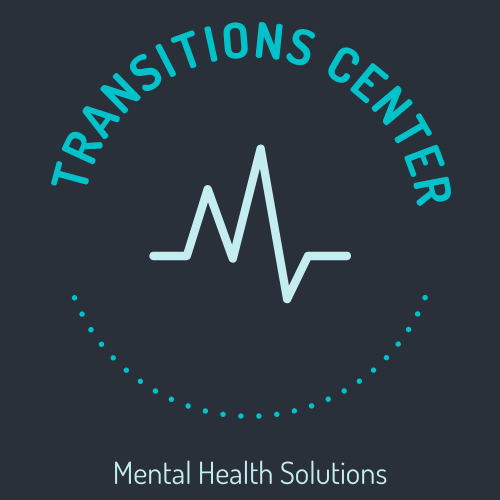Attention Deficit Hyperactivity Disorder (ADHD) is a neurodevelopmental disorder that affects millions of children and adults worldwide. It is characterized by symptoms such as inattention, hyperactivity, and impulsivity, which can significantly impact an individual’s daily functioning and quality of life. While traditional treatments like medication and behavioral therapy have proven effective, there is a growing interest in alternative approaches, such as biofeedback therapy, to help manage ADHD symptoms. This article explores biofeedback therapy as an innovative and promising approach for individuals with ADHD.
What Is Biofeedback Therapy?
Biofeedback therapy is a non-invasive treatment that involves measuring and providing feedback on physiological processes within the body. It aims to help individuals gain control over their bodily functions that are typically involuntary, such as heart rate, blood pressure, muscle tension, and brainwave activity. By providing real-time feedback, individuals can learn to recognize and regulate these processes, leading to improved self-regulation and symptom management.
How Does Biofeedback Therapy Work For ADHD?
In the case of ADHD, biofeedback therapy focuses on training individuals to enhance their attention, impulse control, and self-regulation skills. It utilizes various monitoring devices to measure specific physiological markers associated with ADHD, such as brainwave activity and heart rate variability.
Electroencephalography (EEG) biofeedback, also known as neurofeedback, is one of the most commonly used forms of biofeedback therapy for ADHD. It involves placing electrodes on the scalp to monitor brainwave patterns, particularly the activity in the frontal cortex, which is associated with attention and executive functions. Through visual or auditory feedback, individuals learn to recognize and modulate their brainwave activity, aiming to increase focus and attention while reducing impulsivity.
Another form of biofeedback therapy for ADHD is heart rate variability (HRV) biofeedback. It measures the time interval between heartbeats, providing information about the autonomic nervous system’s functioning. By learning to control their heart rate variability, individuals can regulate their physiological arousal levels and improve their ability to self-regulate emotions and behavior.
Benefits Of Biofeedback Therapy For ADHD
Improved Attention And Focus: Biofeedback therapy targets the brainwave patterns associated with attention and concentration, helping individuals enhance their focus and sustain attention over time.
Enhanced Self-Regulation: By learning to control their physiological processes, individuals develop better self-regulation skills, allowing them to manage impulsive behavior and emotional fluctuations commonly associated with ADHD.
Reduction In Medication Dependence: While medication can be helpful for managing ADHD symptoms, some individuals prefer to minimize their reliance on medication or complement it with non-pharmacological treatments. Biofeedback therapy offers a non-invasive alternative that can potentially reduce the need for medication or serve as a complementary therapy.
Individualized Treatment: Biofeedback therapy is highly individualized, with treatment plans tailored to each person’s specific needs and progress. This personalized approach increases the effectiveness and long-term outcomes of the therapy.
Long-Term Benefits: Biofeedback therapy has shown promise in producing lasting improvements even after treatment completion. The self-regulation skills learned through biofeedback can continue to benefit individuals beyond the therapy sessions.
Biofeedback therapy provides a novel and innovative approach to managing ADHD symptoms. By harnessing the power of self-regulation and neuroplasticity, individuals can gain control over their physiological processes and improve attention, impulse control, and overall well-being. While further research is needed to establish its efficacy fully, biofeedback therapy offers a promising and individualized treatment option for individuals with ADHD. It is essential to consult with qualified healthcare professionals experienced in biofeedback therapy to determine its suitability and develop a comprehensive treatment plan tailored to each individual’s unique needs.
About The Authors
Are you or a loved one struggling with substance use disorder or other mental health conditions? You’re not alone. At Transitions Center for Natural Mental Health Treatments, we understand how complex and unique these issues can be. From physical dependencies to psychological challenges, each case requires a personalized approach. Our team is dedicated to providing top-notch care and support to help you or your loved one overcome these challenges and achieve lasting wellness. With our help, you can learn how to identify warning signs, cope with mental health disorders, and start on the path to recovery. Don’t wait any longer to seek the help you need – contact us today to learn more!
Sponsored by the best CBD oil online delivery. If you’re looking for an alternative to prescription drugs, Mary Jane’s CBD Dispensary is the place to go. As America’s favorite and most talked about natural remedy, cannabinol (CBD) has become a popular choice among consumers because of its many benefits. Our team at Mary Jane’s are extremely passionate about this industry-leading product and aim to educate our customers on how they can incorporate it into their lives with ease. Are you ready to take your health goals seriously? Get in touch with us today!

